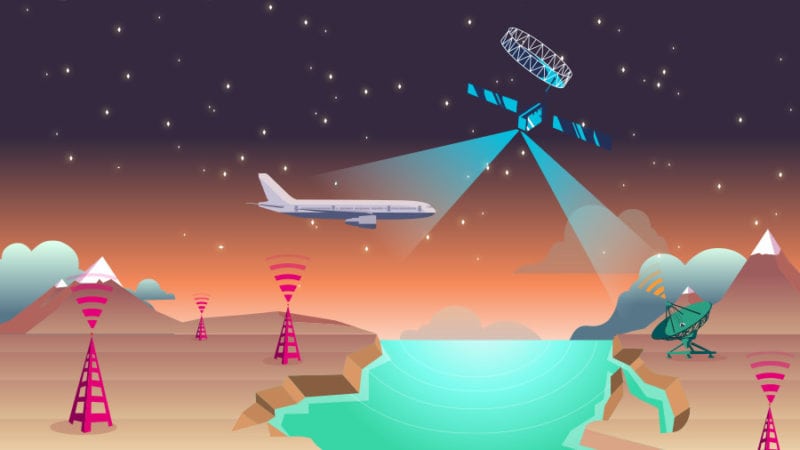IFC a Necessity for 60 Percent of Passengers, Inmarsat Survey Says

Rendering of Inmarsat and Duetsche Telecom the European Aviation Network (EAN). Photo: Inmarsat
Inmarsat’s global In-Flight Connectivity (IFC) survey shows that 60 percent of passengers believe in-flight Wi-Fi is a necessity, not a luxury, according to the company. The survey also shows that 45 percent would pay for Wi-Fi, and 61 percent say Wi-Fi is more important that onboard entertainment. As for parents, 66 percent said in-flight internet is a “life saver” when traveling with children.
“High-quality in-flight Wi-Fi is changing the way people think about flying and how they spend their time in the air. Whether using the time to work, to connect with friends and family, or to pass time shopping or viewing entertainment, the availability of in-flight broadband has become a major factor when choosing an airline,” said Leo Mondale, president of Inmarsat Aviation. “This will only increase as more people experience in-flight connectivity. It is clear the opportunity that connectivity presents to airlines cannot be underestimated.”
According to the survey results, demand for Wi-Fi is so great that 44 percent of respondents said they would stop using their preferred airline within the next year if uninterrupted IFC was not available for passengers. Inmarsat said that passengers rank the ability to connect to their personal mobile devices in-flight in the top three considerations when choosing an airline. Ticket price is number one at 53 percent, and flight slots is number two at 44 percent, for the 40 percent of passengers who have experienced high-quality Wi-Fi.
Other findings Inmarsat noted include 61 percent agree that IFC takes the anxiety out of flying because they can stay in contact with people on the ground, and that 77 percent of passengers would pay for IFC on short-haul leisure flights, an increase from 64 percent in 2016.